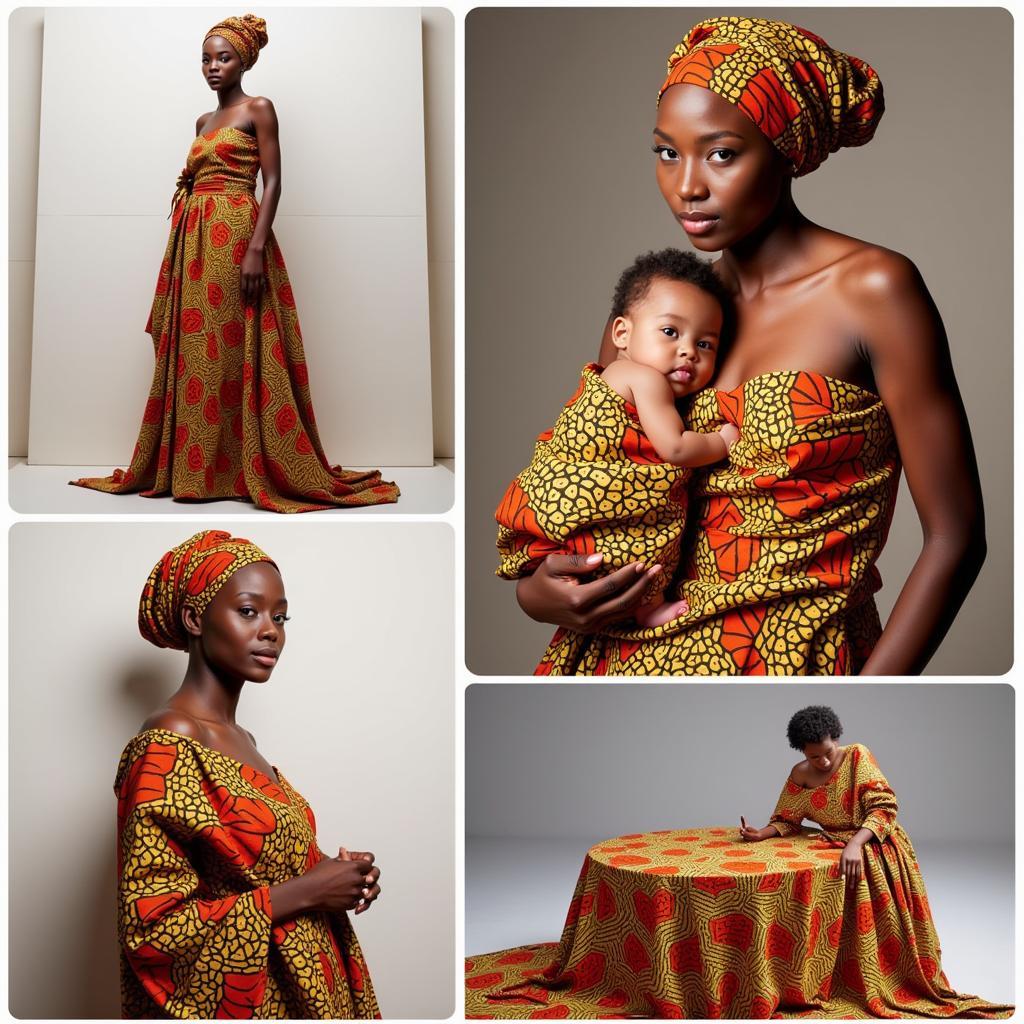African American Names and Surnames: A Journey Through Ancestry and Identity
African American Names And Surnames are a rich tapestry that reflects a complex and often painful history. They tell stories of resilience, cultural preservation, and the enduring legacy of slavery. Understanding the origins and evolution of these names provides a deeper appreciation for the African American experience and its impact on American society.
The Roots of African American Names
Before slavery, enslaved Africans typically bore their own tribal names, reflecting their cultural heritage and lineage. However, upon arrival in America, these names were often discarded and replaced with new ones chosen by slave owners. This practice served to dehumanize enslaved people, stripping them of their identity and creating a new system of control.
Forced Name Changes and Their Impact
Slave owners frequently gave enslaved Africans European names, often choosing names from the Bible, mythology, or simply names they liked. The practice of naming enslaved people after their owners was also common. These forced name changes had profound implications:
- Loss of Cultural Identity: Enslaved people were denied the opportunity to pass on their ancestral names and traditions to future generations.
- Symbolic Subjugation: The forced adoption of European names served as a constant reminder of their subjugation and the denial of their African heritage.
- Erasure of Identity: Generations of African Americans lost the connection to their roots, making it challenging to trace their family history and understand their cultural origins.
The Resilience of African American Naming Practices
Despite the challenges, enslaved Africans and their descendants displayed remarkable resilience in preserving elements of their culture, including their naming practices.
Adapting to a New Reality:
- Using African Elements: Many enslaved people incorporated African elements into their European names, creating unique variations that preserved some semblance of their heritage.
- Choosing Meaningful Names: Even when forced to adopt European names, enslaved people often chose names that held special meaning or represented their hopes and dreams.
- Passing on Traditions: Despite the challenges, enslaved families found ways to pass on their cultural traditions and names, albeit in altered forms, to their children.
The Power of African American Surnames
African American surnames often hold a unique significance. They can provide insights into:
- Origins and Lineage: Surnames may reflect family histories, locations, and cultural affiliations.
- Resistance and Empowerment: Surnames chosen by enslaved people or their descendants can symbolize a rejection of their imposed identity and a reclaiming of agency.
- Community and Belonging: Shared surnames can foster a sense of community and belonging among African Americans, connecting them to a larger historical narrative.
Famous African American Names and Surnames
Many African Americans have made significant contributions to society. Their names serve as a testament to their achievements and legacies. Here are a few examples:
- Malcolm X: His name, chosen by the Nation of Islam, represents a rejection of his slave name and an embrace of his African heritage.
- Martin Luther King Jr.: The name “King” signifies his role as a leader in the Civil Rights Movement and his fight for equality.
- Oprah Winfrey: Her name, though of African origin, reflects her journey from humble beginnings to becoming a media mogul and cultural icon.
The Evolution of African American Names Today
In contemporary society, African American names continue to evolve. New trends include:
- Reclaiming African Roots: Many African Americans are choosing names that reflect their African ancestry or honor historical figures from the African diaspora.
- Celebrating Unique Identity: African Americans are increasingly choosing names that are unique, expressive, and reflective of their individual identities.
- Redefining Traditional Names: New spellings and variations of traditional names are gaining popularity, creating fresh perspectives on classic names.
The Importance of Naming for Identity
For African Americans, names are more than just labels. They represent:
- Ancestral Heritage: Names connect individuals to their past and serve as a reminder of their cultural roots.
- Personal Identity: Names help shape a person’s sense of self and their place in the world.
- Cultural Significance: Names reflect the values, traditions, and beliefs of a community and its history.
FAQs
1. What are some common African American surnames?
Some common African American surnames include Johnson, Williams, Brown, Jones, Davis, Miller, Wilson, Moore, Taylor, and Thomas. These names often have roots in European slave owners, but their significance has been redefined by African American communities.
2. How can I learn more about my own family history and name origins?
There are many resources available to help you trace your family history, including online genealogical databases, historical archives, and DNA testing.
3. What impact has the Civil Rights Movement had on African American naming practices?
The Civil Rights Movement led to a renewed focus on cultural pride and identity among African Americans. This was reflected in a shift towards names that celebrated African heritage and reclaimed agency.
4. Why are some African Americans choosing to change their names?
Some African Americans choose to change their names for a variety of reasons, including:
- Connecting to their Heritage: They may wish to adopt names that reflect their African ancestry or cultural identity.
- Expressing Individuality: They may want to choose names that are unique, expressive, and reflect their personal beliefs.
- Breaking Free from Past Trauma: They may wish to distance themselves from names associated with slavery or oppression.
5. What are some resources for finding more information about African American names?
You can find additional information about African American names and surnames through:
- African American last names
- Academic journals and books on African American history and culture.
- Online databases and genealogy websites.
- Museums and historical societies focused on African American history.
Understanding the complex history of African American names and surnames is crucial for appreciating the richness and resilience of African American culture. These names are more than just labels; they are powerful symbols of identity, heritage, and the ongoing journey of self-discovery.


